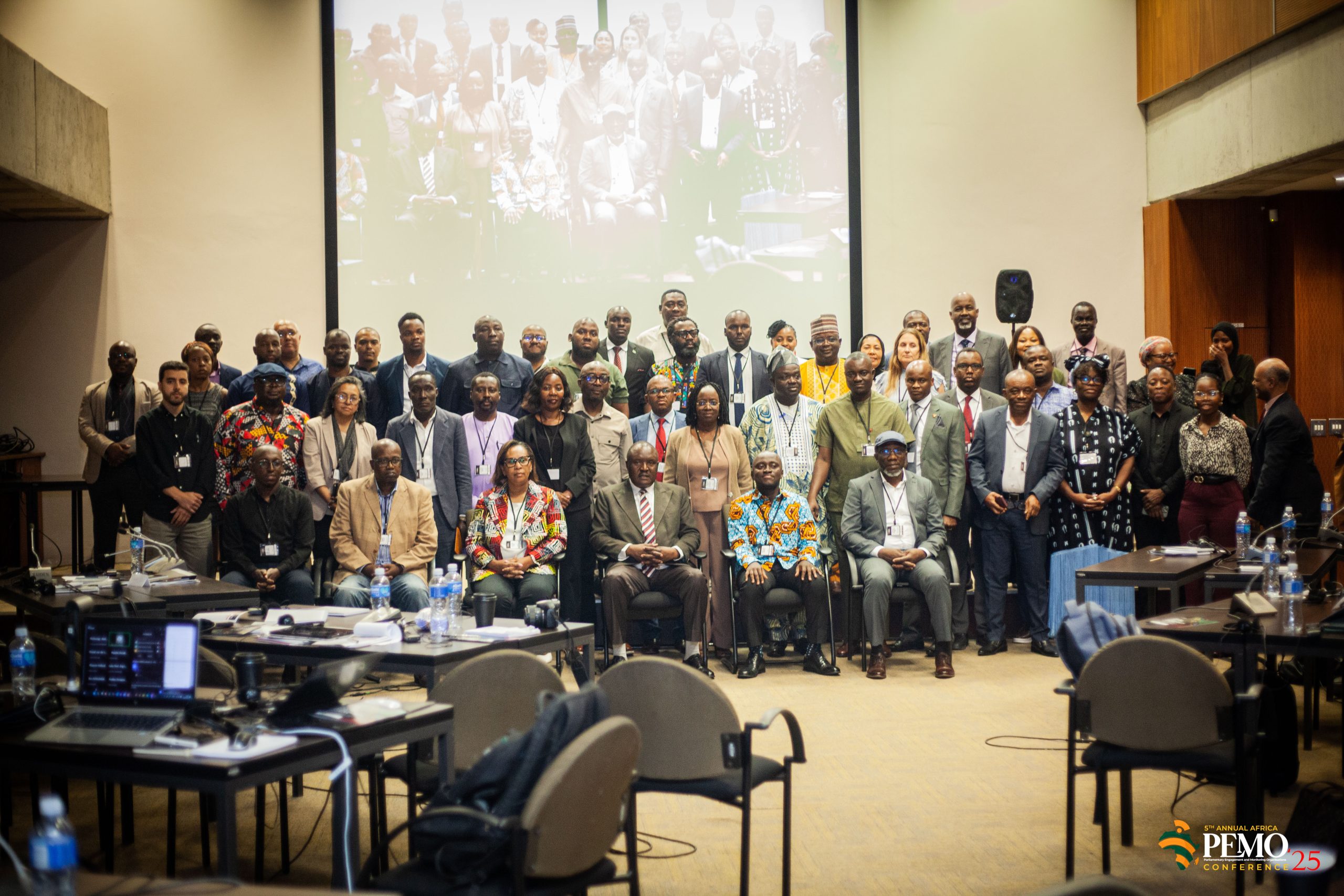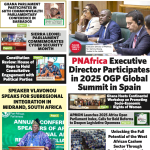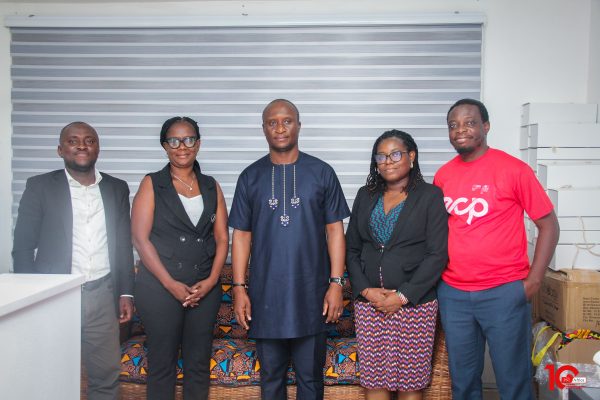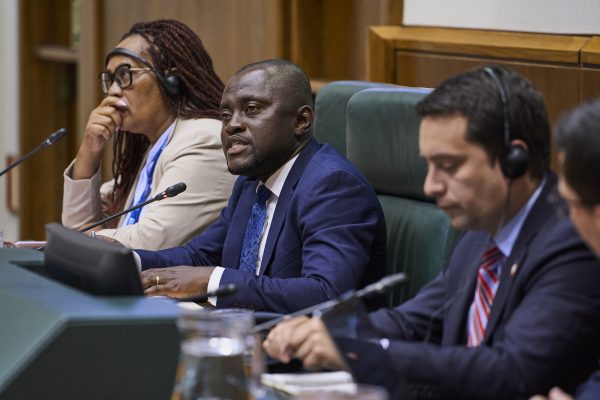APMON HOLDS AFRICA’S 5TH PEMO CONFERENCE 2025 IN PRETORIA
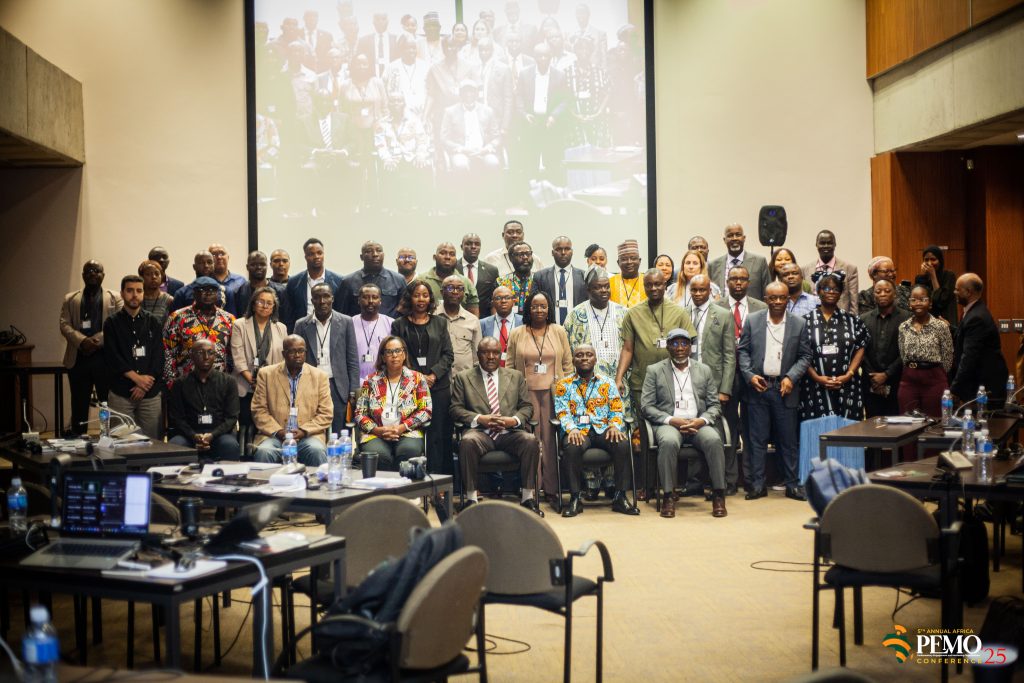
For the first time after several years of isolated conferences held across Africa, the Africa Parliamentary Monitoring Organisations Network (APMON) convened the biggest Parliamentary Engagement and Monitoring Organisations (PMO) conference in Africa in Pretoria, South Africa,between 16 and 18 September 2025.
Parliaments are the cornerstone of democratic governance, shaping laws, holding executives to account, and representing citizens’ voices. Across sub-Saharan Africa, the relationship betweenlegislatures and civil society has come under strain in recent years, weakened by political instability,executive overreach, corruption, and limited citizen engagement. The year 2024, for instance, saw a series of pivotal elections across the continent – some credible, others postponed or mired in controversy – underscoring both the fragility and resilience of African democracies.
This provides a critical juncture to renew dialogue, restore trust, and strengthen the channels through which citizens influence parliamentary processes.
The global context even adds urgency to this task. We see shifts in foreign policy, such as the UnitedStates’ retrenchment from trade and development commitments and climate compacts, exposingAfrican countries to economic shocks, food insecurity, and disrupted manufacturing supply chains. National responses from many African states have been fragmented; they lack the kind of coordinated regional and continental approaches that could safeguard livelihoods.
In this climate, legislatures – as representatives of the people – must be empowered to work with civil society to craft coherent, people-centred strategies. How do we achieve this?
The challenges of Africa manifest differently across its regions: in East Africa, they grapple with political instability, corruption, and limited technological capacity; Southern Africa faces executivedominance, fiscal dependency, and public disengagement; watch West Africa and you would see how the sub-region contends with coups, fragile democracies, security threats, and the underrepresentation of women. Yet these differences also create opportunities for mutual learning, innovation, and collaborative problem-solving.
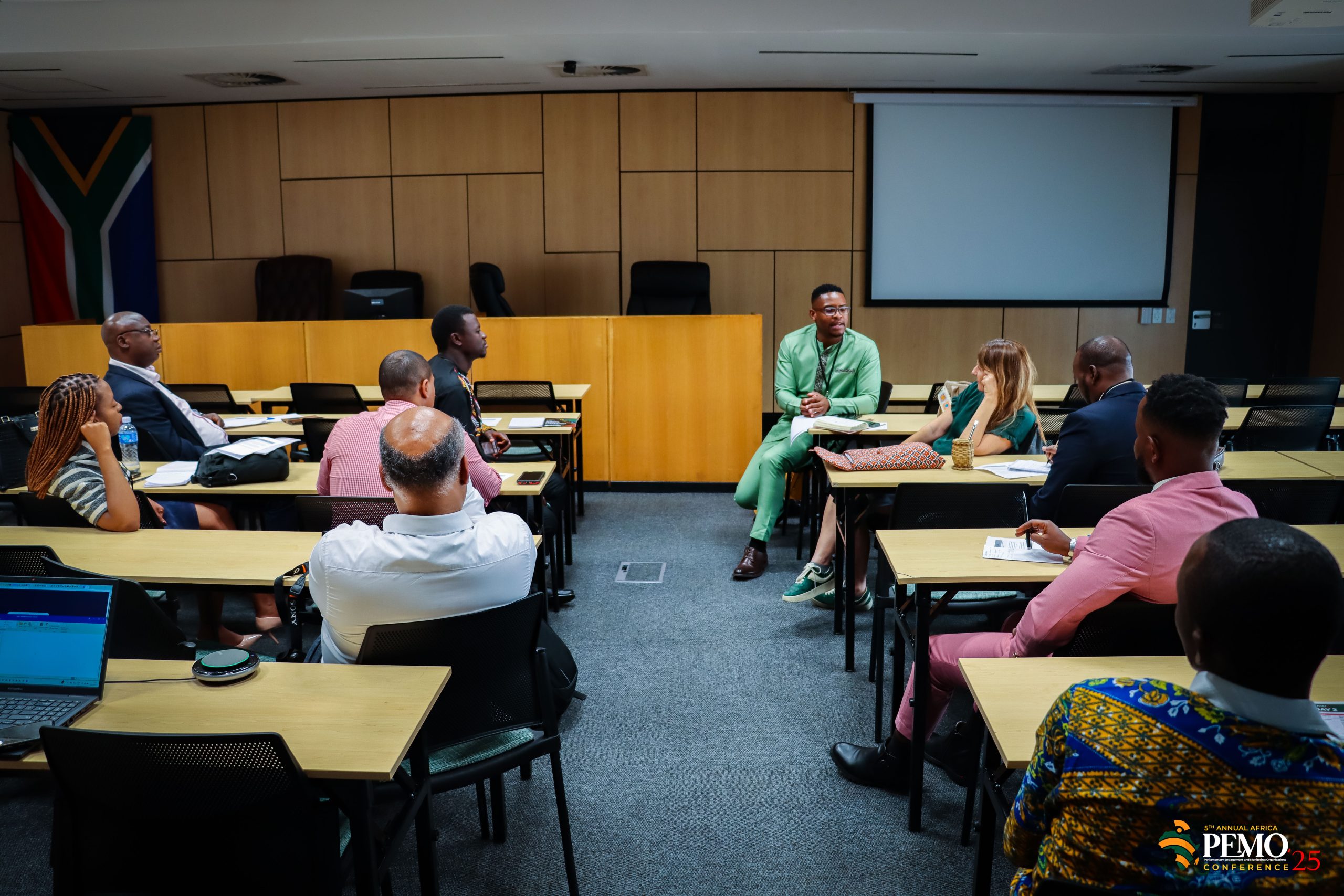
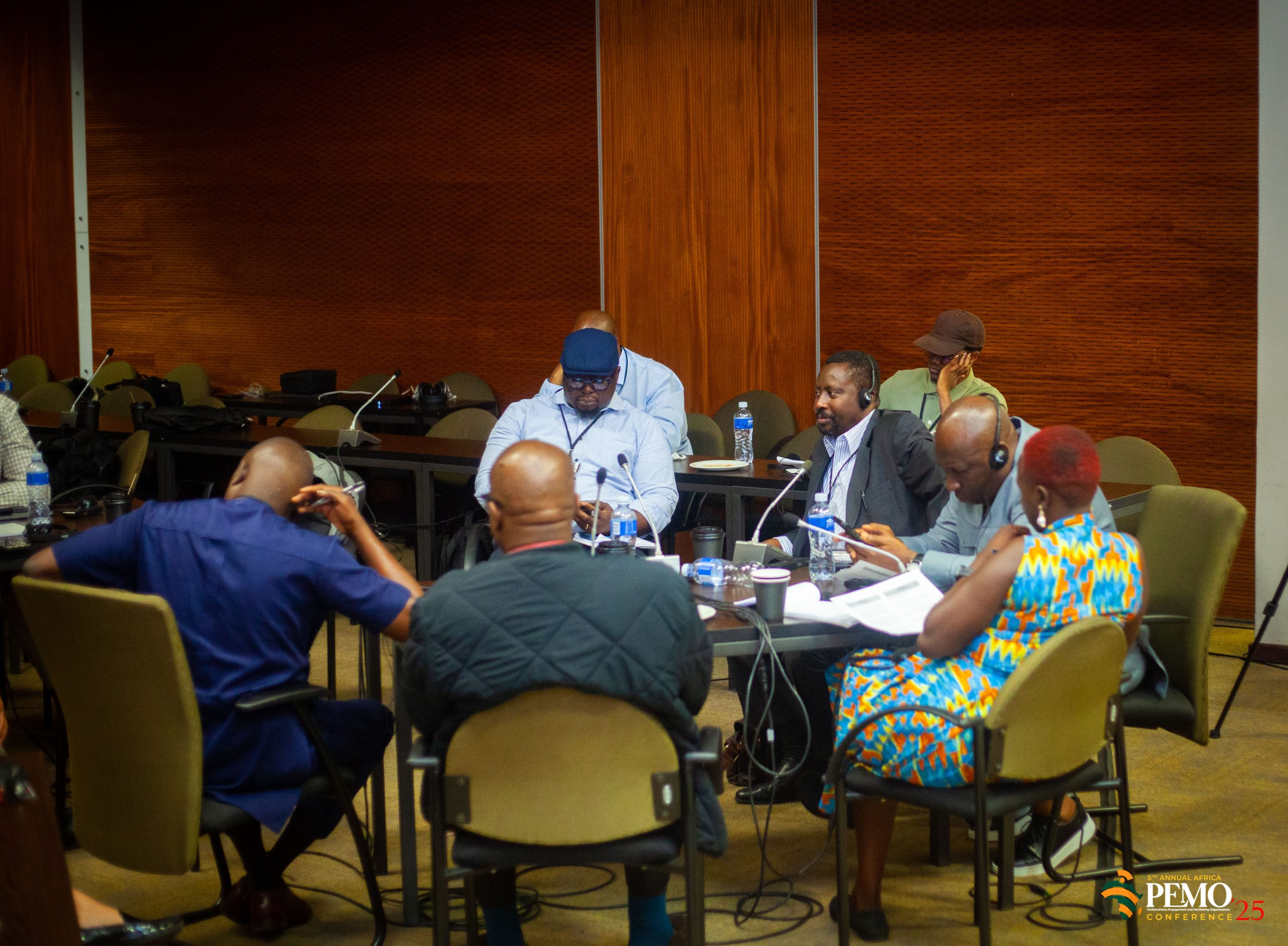
The solution – the annual Africa PEMO Conference was organised to one, strengthen and renew constructive dialogue between legislatures and civil society across sub-Saharan Africa; two, share cross-regional lessons, innovations, and case studies of effective parliamentary engagement and monitoring; and then three, develop actionable recommendations and engagement mechanisms for regional and continental parliamentary bodies. These objectives were inspired by the need to redefine the conversation between parliaments and civil society in order to enable an effective engagement and support for representative institutions across the African continent.
The 5th Annual PEMO Conference hosted in Pretoria brought together over 40 PEMO representatives, parliamentary development practitioners, members of the Pan-African Parliament andother regional actors, and media to reflect on democratic progress and renew strategies for meaningful engagement between legislatures and civil society in Africa. The theme for the conference was: “Back on Track: Renewing the Dialogue Between the Legislatures and Civil Society,” focusing on shared lessons, innovations, and solutions to longstanding legislative governance challenges in Africa.
The 3-day conference, which was hosted by the Parliamentary Monitoring Group (PMG) and the University of Pretoria, featured plenary sessions, side events, and comparative learning briefs. Delegates from across Central, Southern, Eastern, Northen and Western African countries, along with members of the Pan-African Parliament (PAP), representatives of the Open Government Partnership (OGP), continental CSO forums, and media.
The meeting was attended by H.E. Chief Fortune Charumbira, President of the Pan-AfricanParliament, who called for renewing dialogue between legislators and society. He warned that African democracy is weakened by leaders’ lack of accountability and exclusion of citizens from decision-making. Using Burkina Faso’s 2008 crisis as an example, he cautioned against legislatures ignoring public sentiment.
He also identified mistrust between governments, citizens, and civil society as a major barrier, and reminded delegates of PAP’s role in promoting citizen-centred governance. His call to action was clear: “advance the vision of One Africa, one voice.”
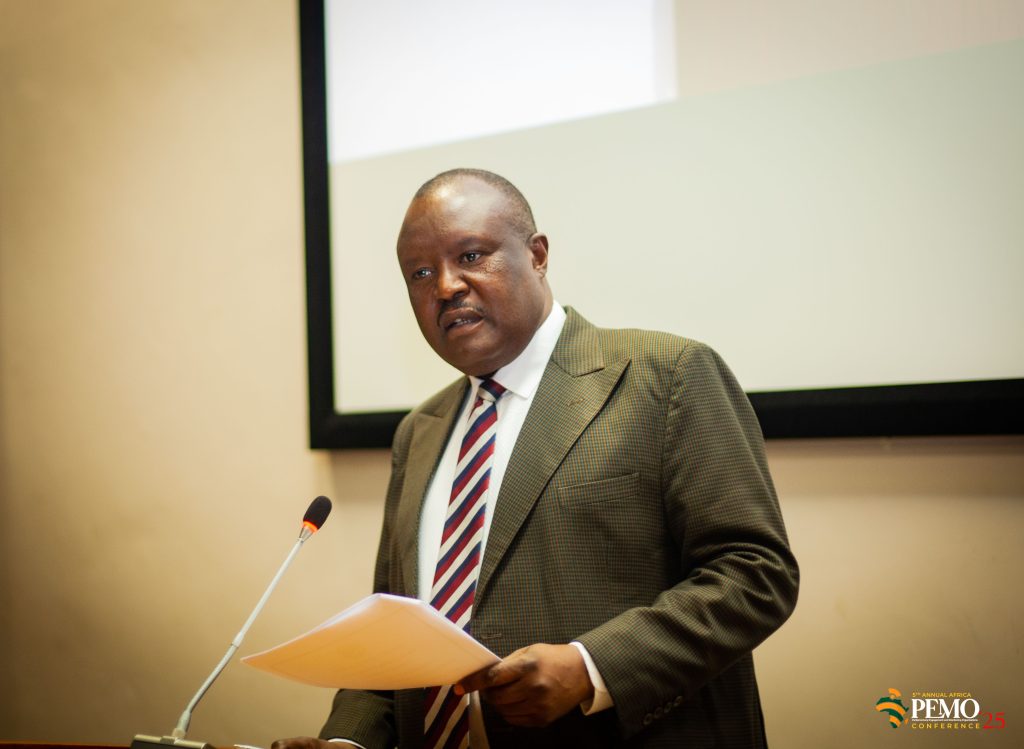
The conference discussed topics that cut across various areas of the work of parliament and parliamentary democracy in Africa, including strengthening the partnership between parliaments and civil society, challenges of open parliament, elections in Africa and how that affects the change we want, parliamentary monitoring tools and tips, and the Open Parliament Index.
The conference ended with an Annual General Meeting (AGM) for the members of the APMON, who discussed the structure and governance of the continental network. Members of the network were inspired by the learnings and networking from the conference, ready to share within their national networks of PMOs and in the parliamentary community of practice, generally.
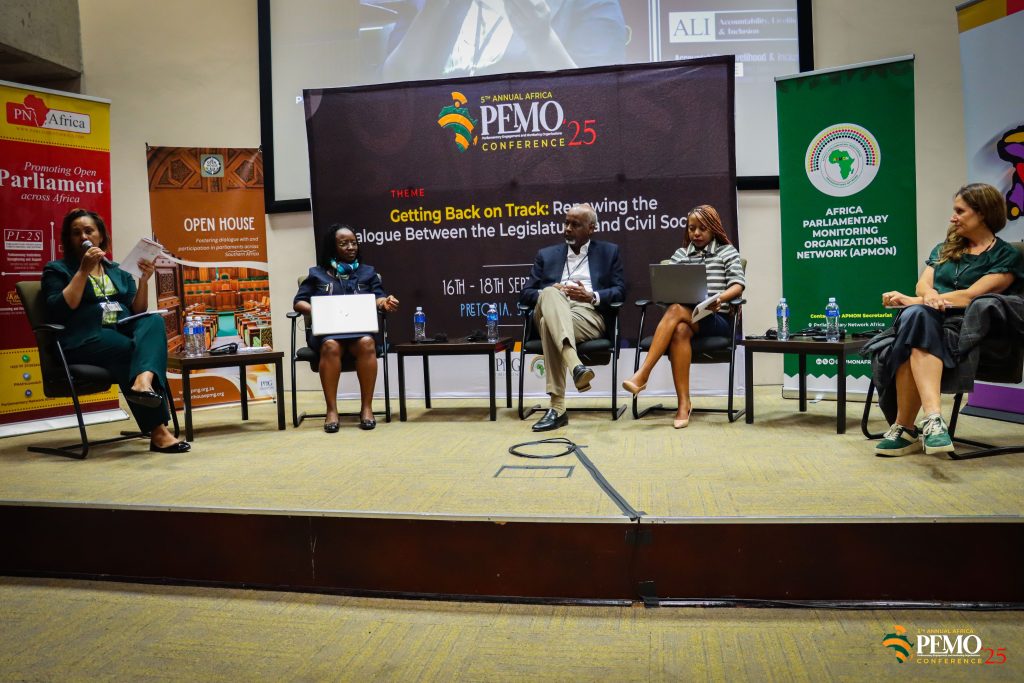
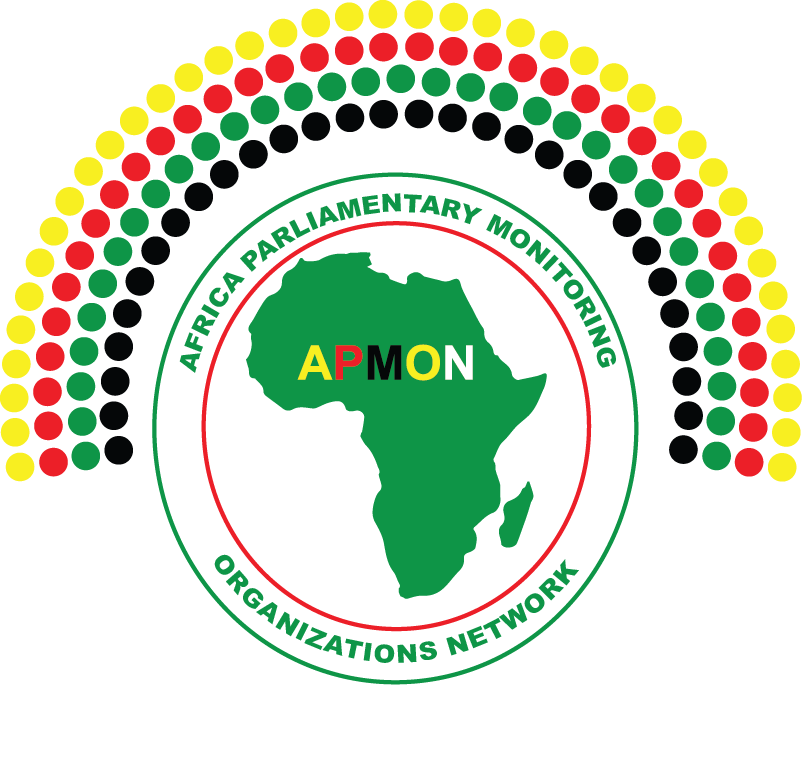
About APMON
The Africa Parliamentary Monitoring Organisations Network (APMON) is a network of non-governmental organisations and coalitions of civil society organisations that monitors the work of and/or regularly engages national, subnational and regional parliaments across Africa. APMON seeks to enhance parliamentary transparency, accountability and citizen inclusion in parliamentary work across the continent, by promoting access to parliaments; developing tools to evaluate parliamentary performance; fostering citizen engagement with their national and regional parliaments; and facilitating peer learning among parliamentary engagement and monitoring organisations (PEMOs) in Africa.
Since its official operations in 2022, the APMON has embarked on numerous impactful initiatives and collaborated with national, sub-national, and regional parliaments, as well as local and international organisations to enhance parliamentary transparency, accountability and citizen participation across Africa. APMON publishes the Open Parliament Index (OPI) – a legislative transparency tool that seeks to measure the level of openness across national and regional parliaments in Africa, first published in 2023. The second edition of the Index assesses national parliaments across three regions on the continent – Eastern, Southern and Western Africa. The Network, in its work, has also engaged the Pan African Parliament (PAP) to enhance reforms that promote open parliament in the continental parliament, as it continues to engage various regional parliaments in Africa.
Learn more about the Africa PEMO Conference here https://www.youtube.com/@APMONAfrica

